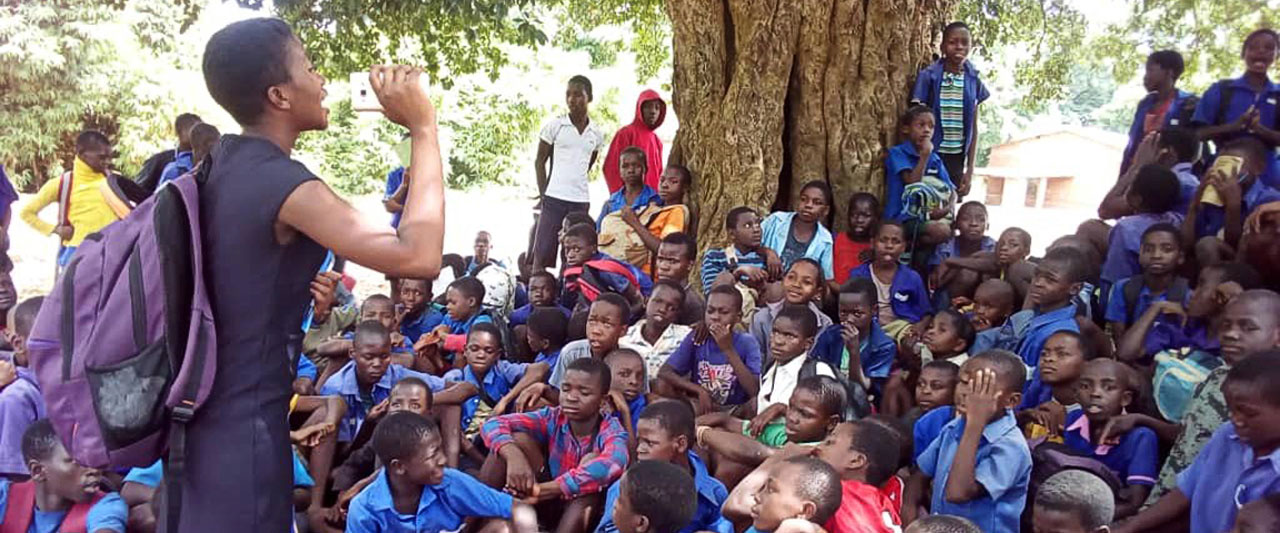Tisungane Sitima was one of the first students in the gender and development program at Lilongwe University of Agriculture and Natural Resources in Malawi—an experience that set her on the path to becoming a champion of sexual and reproductive rights. In this Q & A, she talks about why she became an advocate and her work as chairperson of Ipas Malawi’s initiative to protect access to abortion and contraceptive services during—and beyond—the coronavirus pandemic.
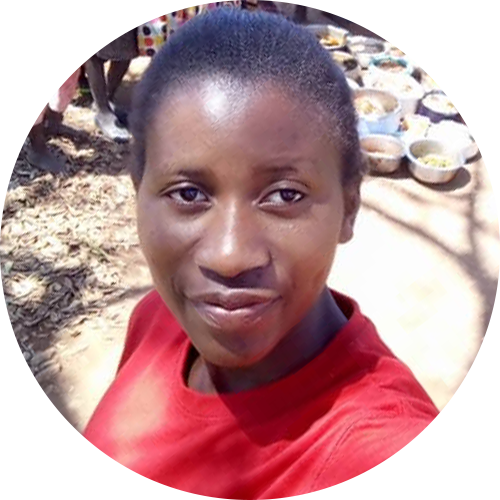
What led you to become an activist?
When I was growing up, I saw within my own family the impact of unplanned pregnancies and unsafe abortion. Both of my sisters got pregnant when they were teenagers and are now single mothers. One wanted to go back to school after her first pregnancy, but was refused attendance. The other, after her second pregnancy, had an unsafe abortion. I really don’t want what happened to my sisters to happen to other people as well; that is why I’m working hard to disseminate information concerning sexual and reproductive health.
How has the pandemic affected the sexual and reproductive rights of young women and girls in Malawi?
Their rights have been highly affected. Women and girls who were going to clinics for contraceptives are now not going, because nurses are focusing on COVID-19 patients and also because many funds have been redirected to COVID-19. This has led to increase in unplanned pregnancies among women and young school girls—which one way or the other will lead to many unsafe abortions. There is also a rise in sexually transmitted infections, since the clubs where youths could go for sexual and reproductive health information are closed, and they now are not getting information on how to protect themselves.
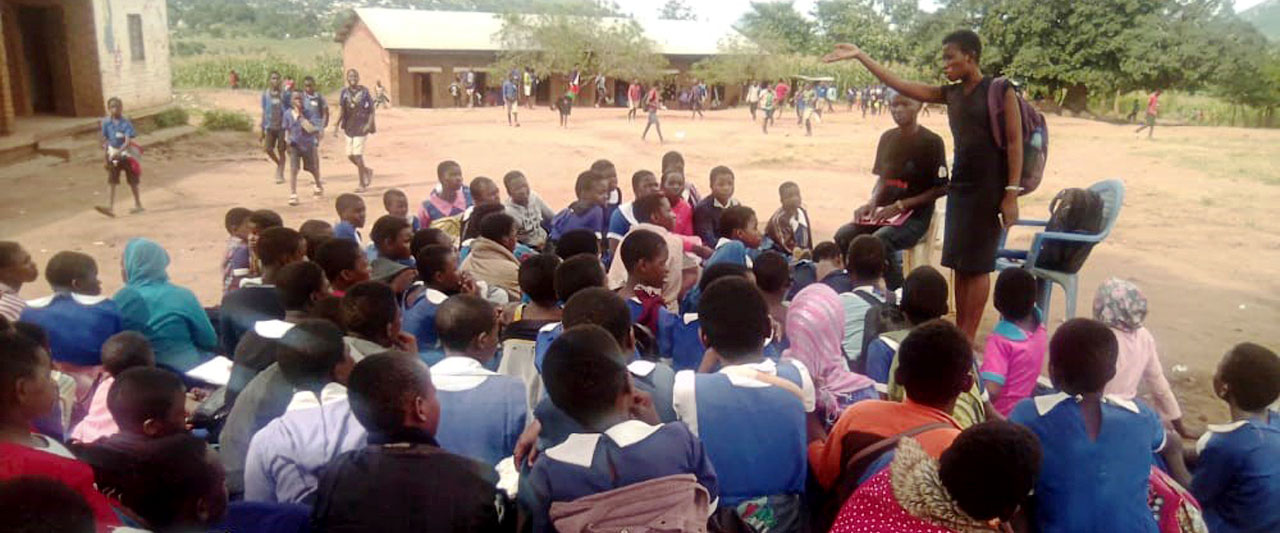
As part of a COVID-19 and gender-based violence (GBV) awareness campaign, Tisungane Sitima shares how students at Mwayi Primary school can report gender-based violence. The village where the school is located had registered a number of GBV cases and the number is expected to rise during the pandemic.
What are your greatest fears about COVID-19 in relation to the sexual and reproductive health and rights of youth, especially young women and girls?
My greatest fear is that, if the sexual and reproductive health rights of women and girls continue to be infringed, we are going to lose more lives. Women and girls will have abortions by unsafe means because of lack of access to services at health facilities.
What can be done to make sure that sexual and reproductive health services remain essential during the pandemic?
The government should prioritize sexual and reproductive health services, because denying those services will lead to more problems in the future. We need to have outlets or one-stop centers specifically for sexual and reproductive health services, apart from the regular health centers or clinics. Ipas Malawi is also working to expand the conditions under which abortion is legal. Malawi’s abortion law is one of the most restrictive in Africa, as it only permits termination of pregnancy to save a woman’s life. This leads many women and girls to end unwanted pregnancies in unsafe ways.
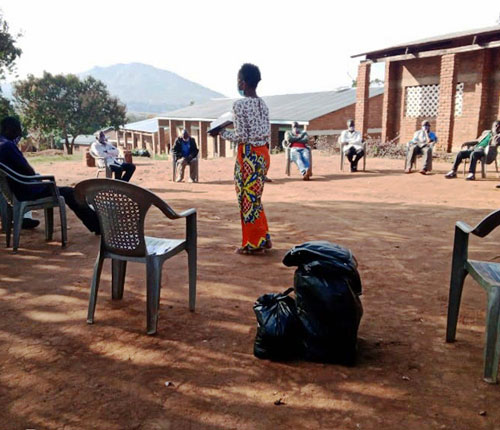
Tisungane meets with traditional chiefs in her district.
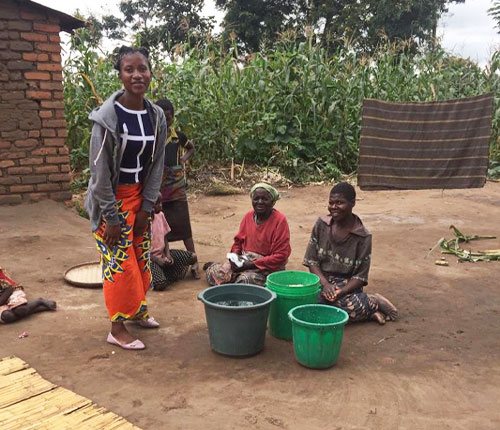
Tisungane distributes soap to villagers after sharing with them information on infection prevention methods during COVID-19.
Tell us about the work you are doing in your community to sensitize people on COVID-19 prevention. Are people able to access soap and masks easily?
My first step was to hold an engagement meeting with chiefs in my community so that they would have an understanding of what is happening. With help from my fellow champions, we also met with other important stakeholders, including social welfare officers, the Victim Support Unit from the Bangwe police station, a nurse from Bangwe health center and directors from several community organizations. The aim was to share what they were doing in response to COVID-19 and discuss ways to move forward.
Before the pandemic, I was meeting with teenagers and have continued to do so. We discuss sexual and reproductive health issues, especially in relation to COVID-19 and gender-based violence.
I also have been distributing masks and soap using my personal funds because it is difficult for people to make use of the safety messages given to them if they do not have the necessary materials and can’t afford to buy them.
You use a mobile phone to help with your work. How is this technology helping you reach people?
It allows me to share sexual and reproductive health information with different groups of people through social media, like Facebook, WhatsApp, Twitter and also LinkedIn. Apart from sharing information, I also receive questions from time to time which I or my friends can help answer, using the phone. It also is helping me to research information on sexual and reproductive health, and how other countries handle these issues.
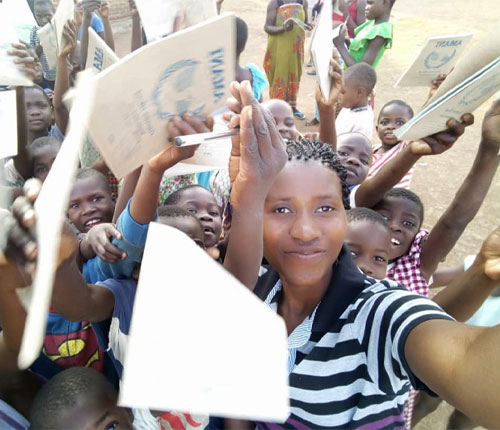
For more information, contact [email protected]


